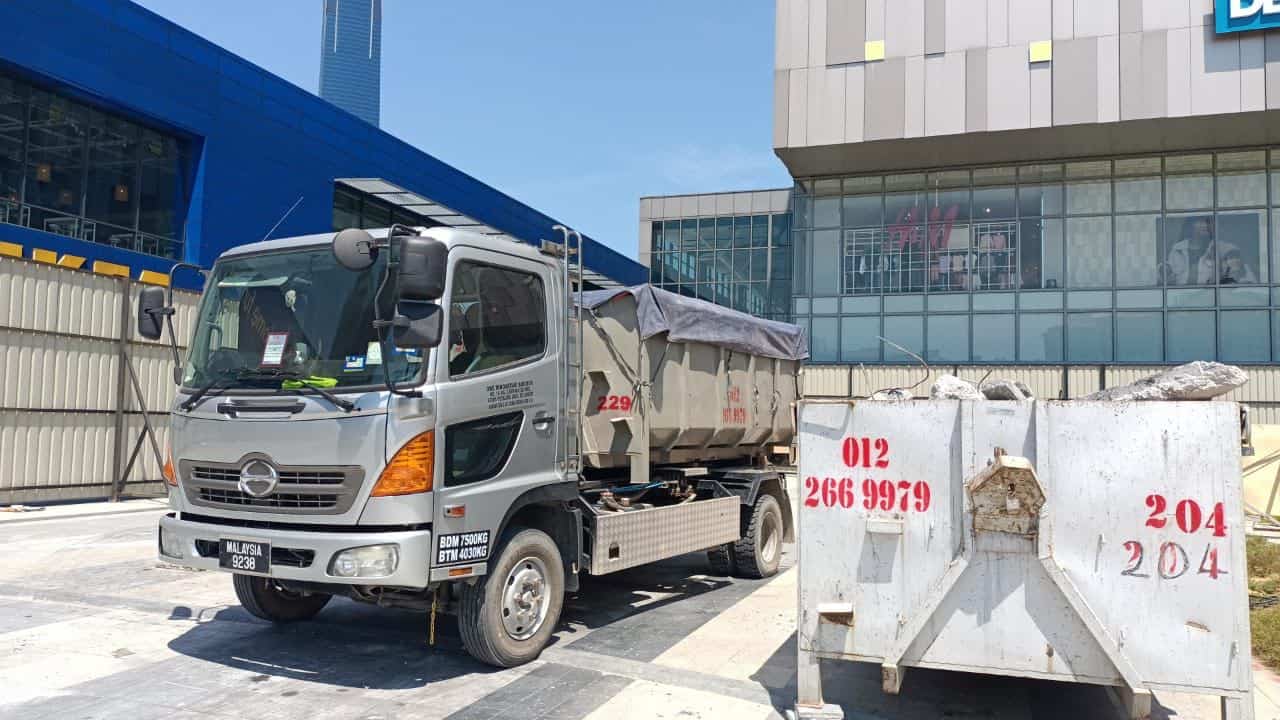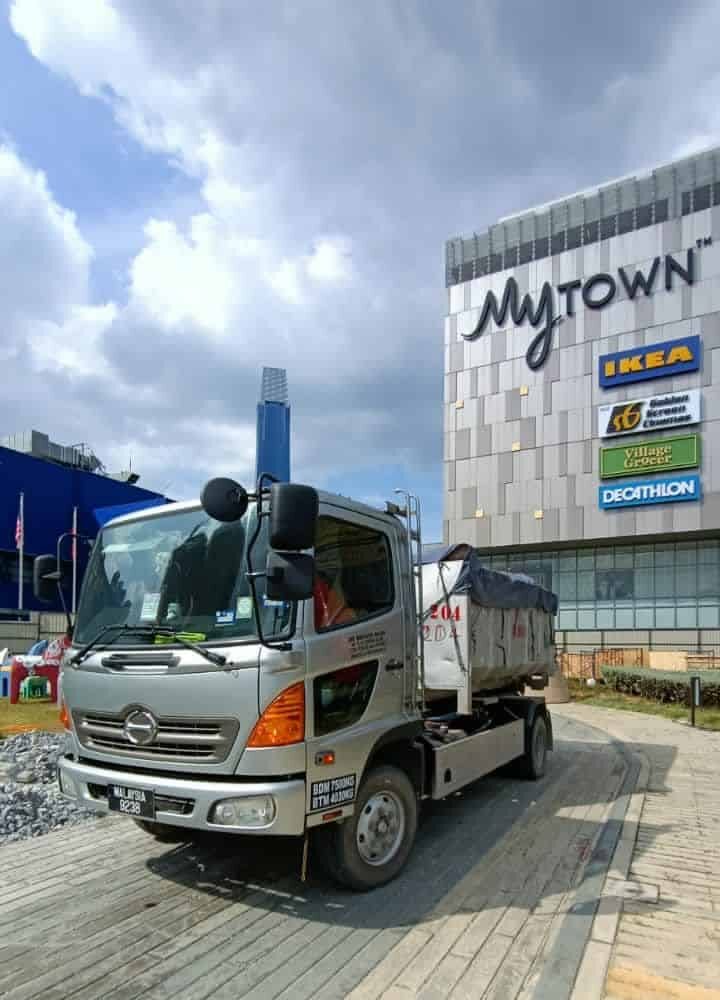RORO BIN RENTAL
Find The Right Size For Your Project

Small Roro Bin
Dimensions: 12′ (L) X 6′ (W) X 2.5′ (H)
Best Use: Heavy construction and demolition waste like concrete and soil.

Large Roro Bin
Dimensions: 12′ (L) X 6′ (W) X 4′ (H)
Best Use: Light-weight construction, industrial, commercial waste, furniture, household bulky waste, trees and etc.

Domestic Roro Bin
Dimensions: 12′ (L) X 6′ (W) X 4′ (H) with roof
Best Use: Domestic food waste (Organic waste).

Extra Giant Roro Bin
Dimensions: 16′ (L) X 8′ (W) X 6′ (H)
Best Use: Light-weight construction, industrial, commercial waste, furniture, household bulky waste, trees and etc.

Giant Roro Bin
Dimensions: 14′ (L) X 7′ (W) X 5.5′ (H)
Best Use: Light-weight construction, industrial, commercial waste, furniture, household bulky waste, trees and etc.
WHAT MAKES US DIFFERENT ?

Value Price

Express Service

Licensed Under Local Authorities

Quick Scheduling
TESTIMONIALS
OUR CLIENTS







PROJECT REFERENCE









Construction Industry Waste Management Service
The construction industry is massive, continuously evolving, and essential for economic development. But with the rise of construction activities, there’s also a significant increase in waste. Managing this waste effectively is crucial to protecting the environment, complying with regulations, and reducing costs. We dives deep into everything related to construction waste management—what it is, why it’s essential, how it can be done effectively, and the innovative solutions that are shaping its future.
Introduction to Construction Waste Management
What is Construction Waste?
Construction waste refers to the materials and debris generated during building, renovation, and demolition activities. This waste can range from concrete and wood to packaging materials and metals. Proper management of this waste is essential to minimize its environmental impact.
Why Waste Management is Essential in Construction
Construction waste management is essential not just for environmental protection but also for regulatory compliance and financial efficiency. Let’s look at the primary reasons why construction companies prioritize waste management.
Environmental Impact
Waste from construction can harm the environment significantly. When left unchecked, it can lead to pollution, greenhouse gas emissions, and the degradation of natural resources. Effective waste management helps in reducing these impacts.
Regulatory Requirements
Most governments worldwide have strict regulations that dictate how construction waste should be managed. Failing to comply can lead to hefty fines and legal complications. Proper waste management helps construction companies stay within the law.
Economic Benefits
Reducing, reusing, and recycling construction waste can lead to substantial cost savings. Companies can lower disposal costs, conserve resources, and even generate revenue by selling recyclable materials.
Types of Waste in the Construction Industry
Common Types of Construction Waste
In construction, waste isn’t one-size-fits-all. Various materials end up as waste, and understanding these types helps in developing effective waste management strategies.
Concrete and Masonry
Concrete, masonry, and asphalt make up a large portion of construction waste. Proper disposal or recycling of these materials can reduce landfill contributions significantly.
Wood and Timber
Wood waste, including pallets and timber, is another major component. This can often be reused or repurposed for other construction activities.
Metals
Metal waste, including steel and copper, is valuable and can be recycled easily. Recycling metals reduces the need for new metal extraction, conserving natural resources.
Plastics and Packaging
Plastic waste, often in the form of packaging, can be particularly harmful to the environment. Recycling plastics helps reduce landfill use and pollution.
Hazardous Waste in Construction
Some construction activities produce hazardous waste, such as asbestos, lead-based paints, and chemical solvents. These require specialized disposal methods to prevent environmental and health risks.
Waste Management Strategies in Construction
Source Reduction
Source reduction focuses on preventing waste from being generated in the first place. This can involve designing buildings that use fewer materials or ordering materials in bulk to minimize packaging waste.
Recycling and Reuse
Recycling and reusing materials are crucial in waste management. Metals, concrete, and wood are often recycled, reducing the need for virgin materials and conserving natural resources.
Waste Segregation
Sorting waste into categories—such as metals, plastics, and hazardous materials—makes it easier to dispose of them appropriately.
Sorting by Material Type
Waste can be sorted on-site or off-site. On-site sorting allows construction workers to separate materials as they go, making recycling easier.
On-site vs. Off-site Segregation
While on-site segregation can be cost-effective, some construction sites may prefer off-site segregation where waste is sorted at specialized facilities.
Steps for Implementing Waste Management in Construction Projects
Conducting a Waste Audit
A waste audit helps construction companies understand the types and quantities of waste produced. This data informs the strategies that will work best for managing waste on a project.
Creating a Waste Management Plan
Every construction project benefits from a waste management plan. This plan outlines how waste will be managed, from collection to disposal.
Training and Educating Staff on Waste Management
Training workers on proper waste management practices is crucial. Educated staff are more likely to follow protocols, making waste management more effective.
Benefits of Effective Construction Waste Management
Environmental Benefits
Effective waste management reduces the environmental impact of construction activities, protecting ecosystems and conserving resources.
Cost Savings
Waste management can save construction companies significant costs by reducing disposal fees and promoting recycling efforts.
Compliance with Legal Standards
Meeting legal standards avoids fines and demonstrates a commitment to sustainable practices, which can boost a company’s reputation.
Waste Disposal Services for the Construction Industry
Role of Waste Disposal Companies
Waste disposal companies are essential in managing construction waste. They offer services such as waste collection, transportation, and recycling.
Types of Waste Disposal Services
Different services cater to various waste types, ensuring safe and efficient disposal.
Collection and Transportation Services
Waste disposal companies collect and transport waste to appropriate facilities, reducing the burden on construction companies.
Recycling Facilities
Specialized facilities can recycle metals, concrete, and other materials, helping to reduce landfill contributions.
Hazardous Waste Disposal
For hazardous waste, disposal companies follow stringent protocols to prevent environmental harm and health risks.
Innovative Waste Management Technologies in Construction
Automated Sorting Systems
Automated systems streamline sorting, making waste management more efficient and reducing labor costs.
Smart Waste Tracking Systems
Technology now allows for real-time tracking of waste, giving companies insights into their waste output and helping them make informed decisions.
Challenges in Construction Waste Management
High Costs of Disposal and Recycling
Disposal and recycling can be costly, and not all companies have the budget to implement these practices extensively.
Lack of Skilled Labor
Managing waste requires training, and the lack of skilled labor can make waste management challenging.
Limited Recycling Facilities
In some regions, recycling facilities are scarce, making it difficult for companies to recycle materials.
Future of Waste Management in the Construction Industry
Growing Trends in Green Building
Green building practices are on the rise, promoting sustainable construction and waste reduction.
Increasing Adoption of Sustainable Practices
As awareness grows, more construction companies are adopting sustainable practices to minimize waste.
Managing construction waste is crucial for the environment, public health, and construction companies’ profitability. With the right strategies, technologies, and regulations, the construction industry can continue to build a sustainable future.


